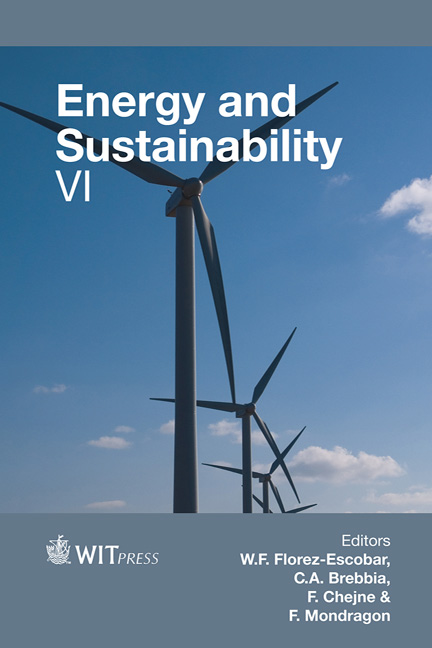Power Generation Estimation From Wheat Straw In Mexico
Price
Free (open access)
Transaction
Volume
195
Pages
10
Page Range
101 - 110
Published
2015
Size
786 kb
Paper DOI
10.2495/ESUS150091
Copyright
WIT Press
Author(s)
C. García, G. Montero, M. Coronado, R. Torres, A. M. Vázquez, J. R. Ayala, J. A. León, C. A. Sagaste
Abstract
By 2013, the wheat grain harvested area in Mexico was 683,044.42 ha, which represents 3.06% of the national area for agricultural purposes. At the end of each agricultural cycle, wheat straw is generated as biomass waste. Mexican farmers burn the wheat straw in the same place where it is generated, in order to clean and prepare the land for the next harvest. Hence, the aim of this work was to determine the amount of wheat straw generated at a national level, identify the states with high biomass potential, and estimate the energy potential. It was estimated that 4,612,950.23 t of wheat straw are generated in Mexico. Sonora and Baja California generated 61.69% of the wheat straw. The results highlighted 69.19 PJ per agricultural cycle, equivalent to 18.24% of the biomass energy share reported in Mexico’s National Energy Balance, by 2013. The option to use this energy for electricity generation in a biomass power plant was assessed. It could potentially supply a national biopower industry with a total installed capacity of 728.05 MW. The waste biomass has been one of the best options to replace fossil fuel resources and is a sustainable activity that does not deplete future resources.
Keywords
wheat straw, biomass, power generation, biofuel feedstock





